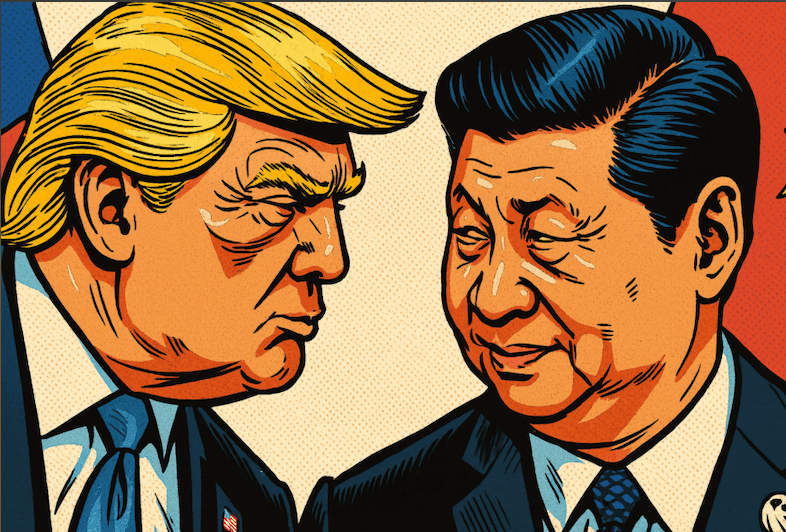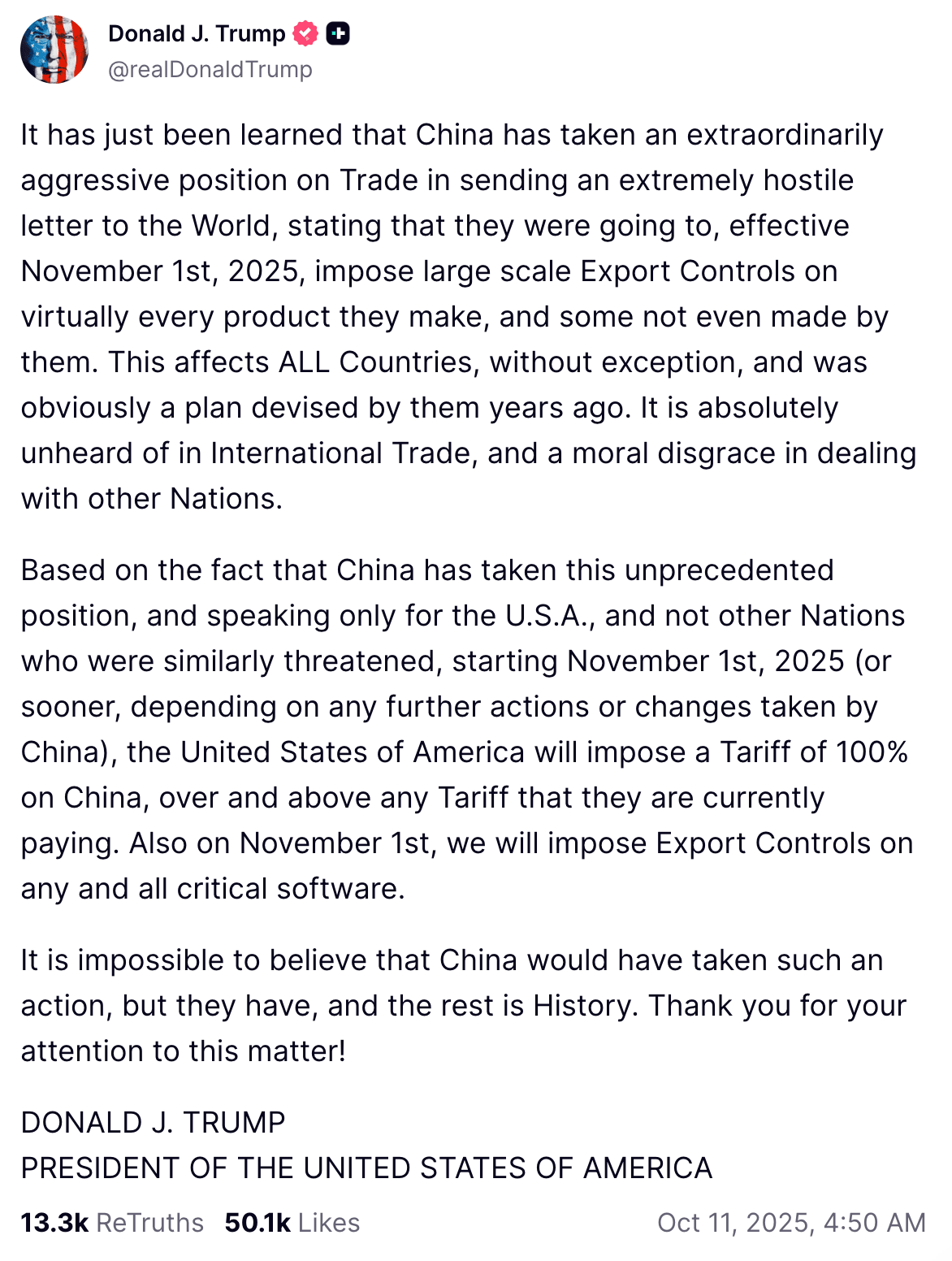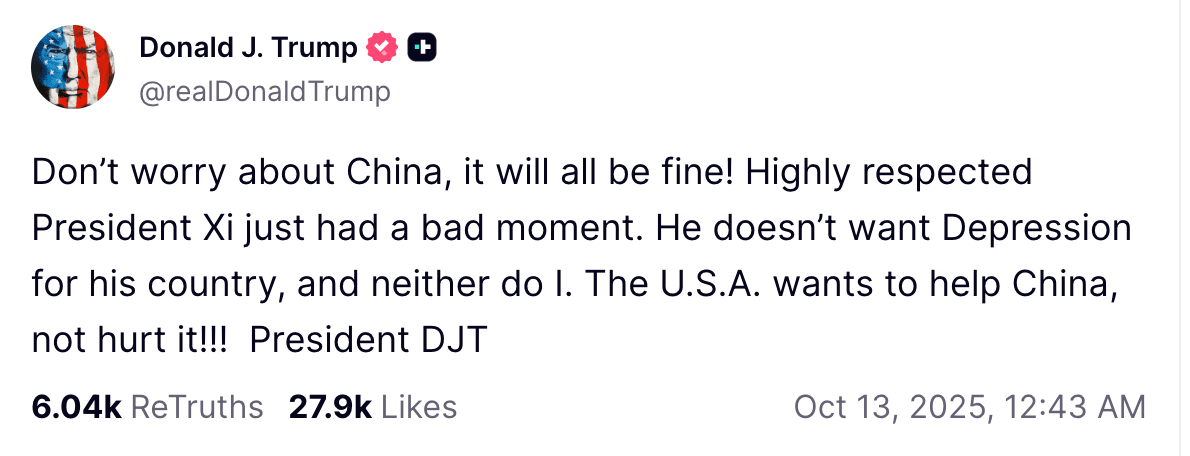
On October 12, US President Trump and Vice President Pence successively sent negotiation signals to China, suggesting that there is still room for maneuver in the US-China trade conflict. However, the recent export control measures announced by the Chinese government are still seen by the White House as a major obstacle to negotiations.
The US-China tariff war is heating up again, trade tensions are rising.
Earlier this year, both the US and China imposed tariffs on each other, with rates reaching as high as 125%. Later, in May, both sides reached an agreement to reduce mutual tariffs to 10%. However, the tariffs on Chinese goods exported to the US, due to the US imposing a 20% tariff on fentanyl from China, resulted in a total tax rate of 30% on China.
Now, with the new round of controls and threats restarted, the US-China trade situation is once again tense.
China announces a new round of export controls on rare earths and high-tech products.
On October 10, China announced that it would impose export restrictions on rare earths and certain high-tech products, with some measures expected to take effect in November. The US views this as a new economic pressure tactic, while China's Ministry of Commerce responded that the US's frequent threats of high tariffs are not the correct way to interact, calling on Washington to return to the negotiating table, emphasizing that export controls are not an export ban.
Trump angrily stated: impose 100% tariffs on China.
Subsequently, on October 11, Trump announced that starting November 1, a 100% tariff would be imposed on Chinese goods, while also restricting the export of certain US software and possibly suspending the shipment of aircraft parts. However, he also left a 'buffer period' for negotiations, stating that November 1 is still a long time for him, hinting that there may still be room for negotiation in the coming weeks.

(Trump orders a cut in drug prices by 30% to 90%! The US and China agree on a 90-day tariff buffer, fully promoting peace talks between Ukraine and Russia)
Pence calls on China to 'please be rational', Trump posts to Xi's platform.
Immediately on October 12, Vice President Pence, in an interview, stated that the US hopes for 'rationality' from China and emphasized that if the other party reacts aggressively, the US has more chips to negotiate. He pointed out that Trump and Xi Jinping still maintain a friendly relationship, but if China attempts to cut off the global supply chain, the US also has corresponding measures.
Trump also later that day posted a message, speaking in a milder tone:
"Don't worry about China, everything will be fine! I have great respect for President Xi, he is just a bit emotionally fluctuating, he doesn't want China to fall into a recession, and I don't want that either. The US wants to help China, not to harm it!"
These remarks are seen by the outside world as goodwill from the US towards China, while also suggesting that the Trump administration still hopes to avoid a trade war.

After the market shook and stabilized, Goldman Sachs: the US and China may extend the suspension of tariff increases.
Last Friday, global markets were affected by the escalating US-China trade conflict, with US stocks, oil prices, and cryptocurrencies all falling. On Monday's Asian morning, following Trump's message of 'willing to talk', US futures quickly rebounded.
Goldman Sachs economists Jan Hatzius and Andrew Tilton pointed out that both sides may take a step back and extend the 'suspension of tariff increases' agreement reached in May.
The two believe that if China's actions this time (such as export controls) are aimed at gaining concessions from the US in negotiations, the final result might be beneficial for the market. For example, the US may agree to lower certain tariffs, allowing both sides to reach a new agreement and ease trade tensions. However, if negotiations fail, it could lead to both sides imposing triple-digit tariffs again.
(Is the US-China trade war reigniting? China responds to Trump's threat of increased tariffs: we don't want to fight, but we are not afraid to fight)
This article states that Trump has shown goodwill to Xi Jinping for negotiations, and Goldman Sachs believes that the US and China may extend the suspension of tariff increases. It first appeared in Chain News ABMedia.
